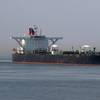With the release of President Obama’s fiscal 2013 budget, the American Association of Port Authorities (AAPA) expressed both accolades, and some disappointment, over various aspects of the budget pertaining to ports and the efficient and secure movement of freight.
Kurt Nagle, AAPA’s president and CEO, said that, even though the Administration’s budget includes cuts in order to meet the Budget Control Act passed by Congress last year, there are bright spots for seaports, such as a much-needed increase in the portion of the U.S. Army Corps of Engineers’ funding pertaining to deep-draft navigation maintenance, and funding for the Department of Transportation’s budget that pertains to enhancing America’s freight mobility.
The president’s 2013 budget proposal includes a request for reimbursement from the federal Harbor Maintenance Trust Fund (HMTF) of $848 million. This represents a nearly 12 percent increase ($90 million) over the fiscal 2012 request of $758 million and would be $28 million more than the $830 million Congress appropriated for maintenance dredging in fiscal 2012. While still not close to the $1.4 billion collected annually from importers and domestic shippers for deep-draft navigation maintenance dredging, the Administration’s fiscal 2013 request is a significant increase from prior years.
“The president’s proposed Civil Works program increase for navigation is the highest budget request ever, and is a very positive step toward AAPA’s long-stated goal of full utilization of the Harbor Maintenance Tax for its intended purpose,” said Mr. Nagle. “Maintaining our federal navigation channels to their authorized and required dimensions will also help make U.S. exports more internationally competitive and is critical for safe access in and out of America's seaports,” he said.
Since the Harbor Maintenance Tax’s inception in 1986, AAPA has advocated for full use of its collections for their intended purpose of dredging America’s deep-draft navigation channels to their authorized and required depths and widths. Mr. Nagle added that, currently, importers and domestic shippers pay approximately double the annual amount that is drawn from the HMTF for maintenance dredging, leaving a surplus that exceeds $6.3 billion today. Because this surplus has been used for other programs, there are serious dredging needs that have gone unheeded.
Another area of the proposed budget important to America’s freight competitiveness falls under the Department of Transportation, which contains a robust, six-year transportation authorization proposal funded at $476 billion. Additionally, the budget request funds immediate transportation investments in fiscal 2012 totaling $50 billion. These investments include $26 billion for the National Highway Program and $4 billion for the National Infrastructure Investments (NII) program—formerly TIGER—which in the past three years has funded more than a quarter-billion dollars in seaport-related infrastructure. All of these elements would have strong and positive effect on freight system improvement.
The proposal also authorizes the NII program at $3.4 billion cumulatively through 2018 as part of the Administration’s six-year authorization proposal. AAPA has long advocated for authorizing a TIGER-style program and dedicating at least 25 percent of the grants to port-related infrastructure.
With regard to seaport security, Mr. Nagle said that the AAPA is both supportive and appreciative of the portion of the administration’s proposed budget that calls for $2.9 billion—more than double last year’s funding level—for FEMA State and Local Programs, which houses the Port Security Grant Program. The budget request, however, also bundles all funds into one pot and gives the Homeland Security secretary the authority to determine funding levels.
The association has opposed similar proposals in the past because first responder programs are substantially different than port security programs and because states may not adequately allocate funds for port security if the programs are combined at the state level.
AAPA continues to advocate for a separate port security funding program at a $400 million annual level to aid ports in beefing up their security infrastructure, technology and personnel programs, and to ensure that terrorist threats don’t become terrorist realities.











